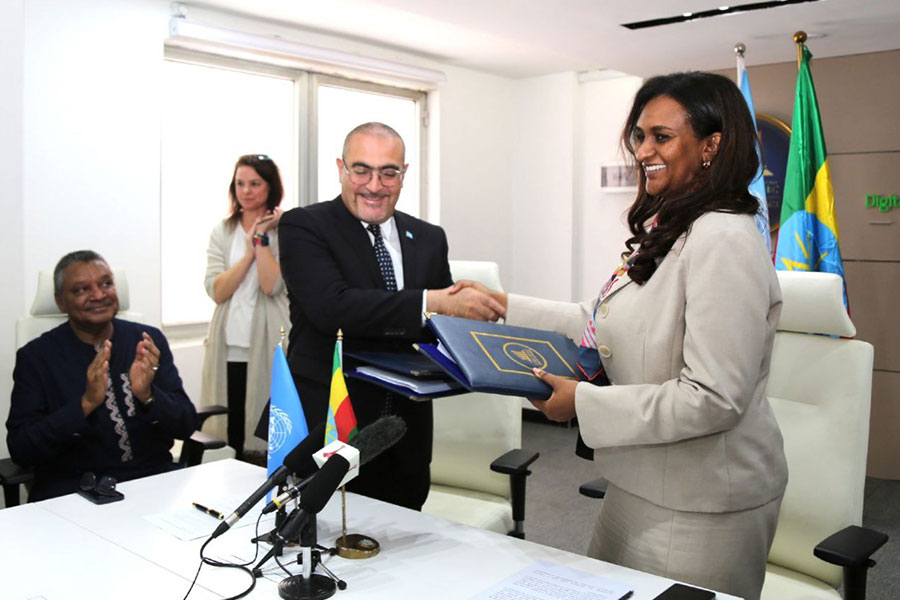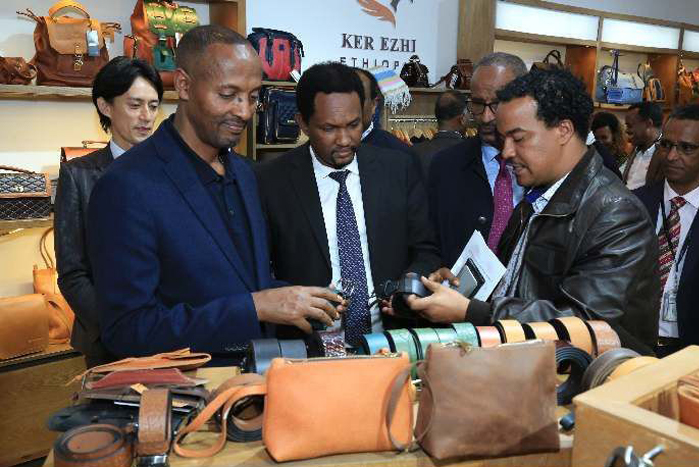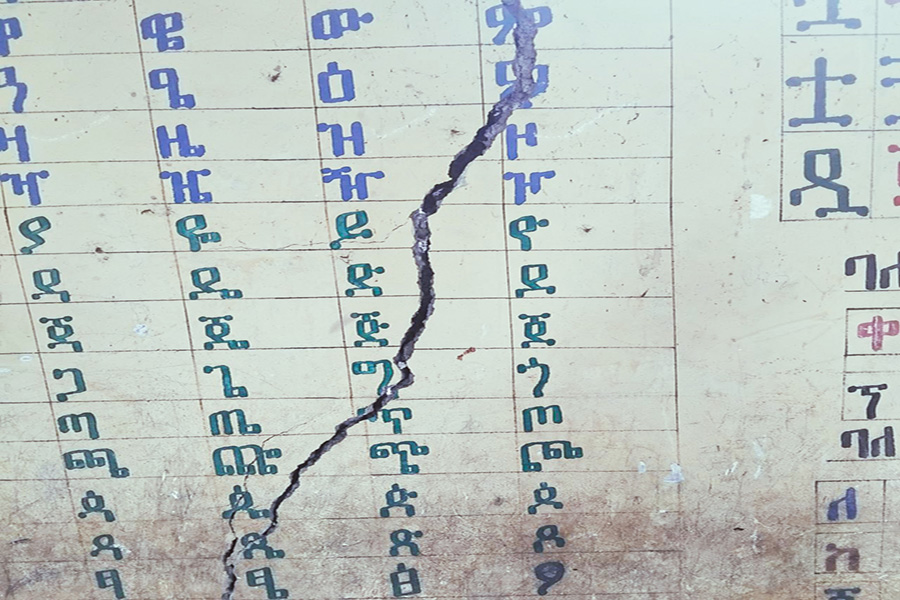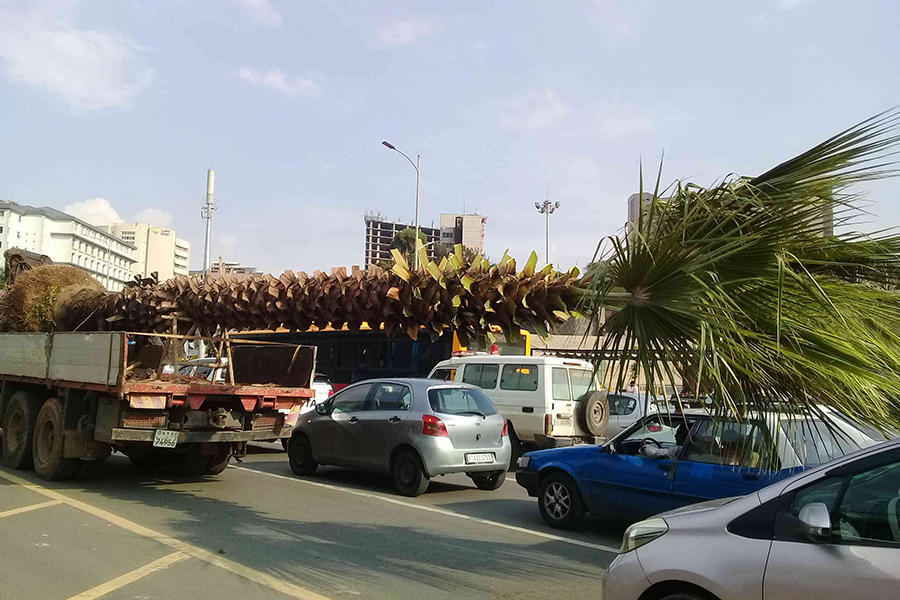
Fortune News | Jun 13,2025
Jul 7 , 2024
By Keun Lee
South Korea's transformation from an authoritarian state-capitalist system to a thriving democracy with an open market economy is nothing short of remarkable. Today, it boasts free trade agreements with the US, EU, China, and India, writes Keun Lee, a former vice chair of the National Economic Advisory Council for the President of South Korea and a professor of economics at Seoul National University. In this commentary provided by Project Syndicate (PS), he argued that South Korea crafted a development path uniquely its own, proving that sometimes, the road less travelled is the one that leads to success.
South Korea is one of the few countries to transform itself from a low- to high-income economy, and the only country to go from a recipient of aid from the OECD's Development Assitance Committee to a DAC donor. It achieved this not by blindly following a pre-designed development path, but by taking the right detours.
There is no shortage of narratives purporting to explain South Korea's development success, but most have serious flaws. For example, some scholars assert that, from the start, South Korea enjoyed important advantages, especially physical infrastructure and human capital that had been built up under Japanese colonial rule. But, most of South Korea's infrastructure was destroyed during the Korean War. The Japanese colonial government offered Koreans only a primary education, and 47pc of Korea's children were enrolled. It was not until after the end of colonial rule in 1945 that primary school enrollment surged, reaching 82pc in 1949, with primary education becoming compulsory in 1950.
As many African countries can attest, beginning one's development journey after decades of colonial rule and years of civil war is hardly advantageous. South Korea did not even have any commodities to export after the war, as all the minerals on the Korean Peninsula were located in the North. It faced severe food shortages, which left it dependent on food aid from the United States (US) throughout the 1950s and 1960s.
When Park Chung-hee's military government seized power in 1961, it had to prioritise feeding the population over advancing industrialisation. To that end, the government instituted a dual-price policy for grain, purchasing it from farmers at high prices and selling it to consumers for low prices. This represented a sharp reversal of the government's approach during the 1950s, when it set food prices low to keep it accessible and limit inflation. This approach reduced weakened farmers' incentive to improve productivity.
The government also developed a new high-yielding rice variety, launched in 1972.
South Korea's military government intervened in the economy in other ways, too. Though some scholars view South Korea's economic miracle as a kind of vindication of the "Washington Consensus," the truth is that the government took a measured approach to financial and trade liberalisation. Notably, one of Park's first acts after taking power was to nationalise commercial banks to cope with the extreme capital scarcity resulting from low domestic savings.
The benefits of rapid financial and trade liberalisation, as the Washington Consensus prescribes, have tended to be short-lived or to follow stop-and-go cycles in developing economies, because the private sector lacks the capabilities it needs to keep up. For example, in some African countries, such as Uganda, commercial and foreign banks charge high interest rates that undermine critical investment in domestic manufacturing capabilities and encourage capital flight.
But in South Korea, banks were privatised only after the government had spent nearly two decades keeping interest rates low, thereby stimulating investment and ensuring that savings were channelled toward boosting the manufacturing sector's capacity. This contributed to such strong income growth that, despite suppressed interest rates, the domestic savings rate soared from nine percent of GDP in the early 1960s to approximately 30pc in the mid-1980s.
South Korea took a similarly judicious approach to trade liberalisation. When a country liberalises trade, local firms must be able to compete with foreign companies. Foreign firms could establish monopolies or destroy the local industrial base if they cannot unless the government implements protective measures.
In South Korea, that protection came in the form of very high tariffs on consumer goods, aimed at allowing the export industries of the future to flourish before they were subjected to excessive foreign competition. Protected domestic firms used their monopoly rents to fund investments because government protections were conditioned on export performance, and firms were still exposed to the discipline of world export markets. Meanwhile, Korea had to import capital goods and were subject to very low tariffs.
Another prominent development narrative focuses on the role of institutions. Daron Acemoglu, Simon Johnson, and James A. Robinson argue that developing economies with extractive institutions – typical in state-capitalist systems – fail to progress, whereas those with inclusive (or democratic) institutions, like South Korea, tend to succeed.
But, South Korea's development success occurred under an authoritarian state-capitalist system. Furthermore, Edward L. Glaeser and his colleagues have found that human capital has a more robust link to economic growth than the institutional variable. So, the real story seems to be that South Korean investment in human capital under the authoritarian regime spurred growth, thereby giving rise to a middle class that demanded democracy.
Finally, some scholars highlight the contrast between Asian countries' embrace of export-led growth strategies and the inward-looking import-substitution policies that many Latin American countries maintained. But here, too, South Korea went its own way, simultaneously implementing an export-oriented growth strategy and pursuing import substitution.
The problem was that domestic firms had to import capital and intermediate goods from abroad to produce goods for export – an expensive proposition that contributed to South Korea's persistent trade deficits through the late 1980s. The government sought to replace those goods with domestically produced alternatives. South Korea's backward participation in global value chains – reflected in the ratio of foreign value-added content in exports to gross total exports – decreased between the mid-1980s and the late 1990s.
Over the past several decades, South Korea has transformed from an authoritarian regime with a half-closed, state-led economy into a robust democracy with a very open market economy. Today, South Korea is the only country with free-trade agreements with the US, the European Union, China, and India. But it did not run directly toward this outcome. Instead, it went slow where it needed to and took calculated detours, which turned out to be the most efficient development path.
PUBLISHED ON
Jul 07,2024 [ VOL
25 , NO
1262]


Fortune News | Jun 13,2025

Commentaries | Oct 03,2024

Viewpoints | Jun 28,2025

Radar | Jun 21,2025

Radar | Sep 04,2022

Radar | Jul 28,2024

Fortune News | Nov 03,2024

Radar | Mar 18,2023

Life Matters | May 31,2025

Fortune News | Oct 18,2025

Photo Gallery | 175684 Views | May 06,2019

Photo Gallery | 165904 Views | Apr 26,2019

Photo Gallery | 156293 Views | Oct 06,2021

My Opinion | 136839 Views | Aug 14,2021

Dec 22 , 2024 . By TIZITA SHEWAFERAW
Charged with transforming colossal state-owned enterprises into modern and competitiv...

Aug 18 , 2024 . By AKSAH ITALO
Although predictable Yonas Zerihun's job in the ride-hailing service is not immune to...

Jul 28 , 2024 . By TIZITA SHEWAFERAW
Unhabitual, perhaps too many, Samuel Gebreyohannes, 38, used to occasionally enjoy a couple of beers at breakfast. However, he recently swit...

Jul 13 , 2024 . By AKSAH ITALO
Investors who rely on tractors, trucks, and field vehicles for commuting, transporting commodities, and f...

Oct 18 , 2025
The political establishment, notably the ruling party and its top brass, has become p...

Oct 11 , 2025
Ladislas Farago, a roving Associated Press (AP) correspondent, arrived in Ethiopia in...

Oct 4 , 2025
Eyob Tekalegn (PhD) had been in the Governor's chair for only weeks when, on Septembe...

Sep 27 , 2025
Four years into an experiment with “shock therapy” in education, the national moo...

Oct 18 , 2025 . By NAHOM AYELE
In a sweeping reform that upends nearly a decade of uniform health insurance contribu...

A bill that could transform the nutritional state sits in a limbo, even as the countr...

Oct 18 , 2025 . By SURAFEL MULUGETA
A long-planned directive to curb carbon emissions from fossil-fuel-powered vehicles h...

Oct 18 , 2025 . By BEZAWIT HULUAGER
Transaction advisors working with companies that hold over a quarter of a billion Bir...